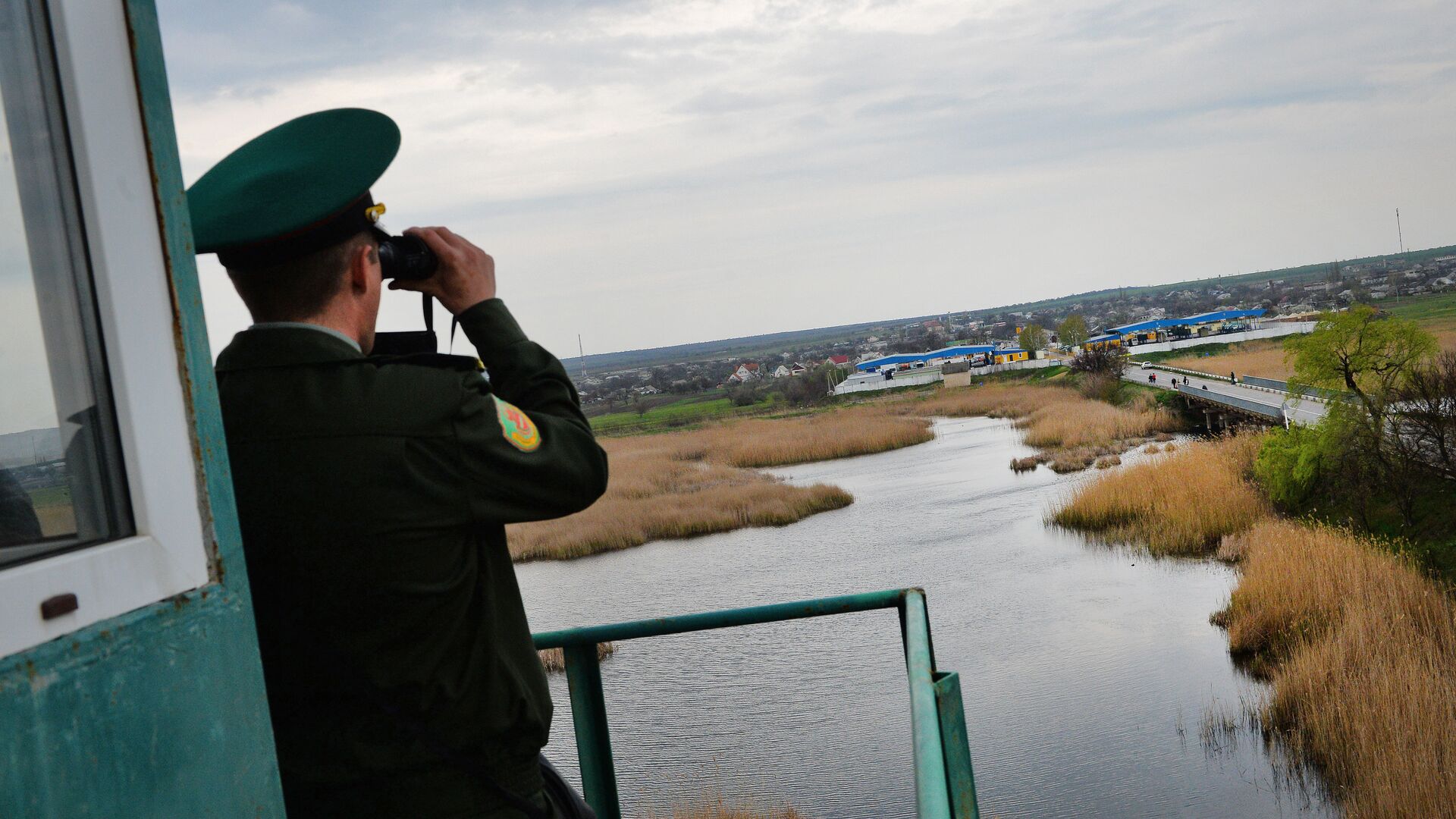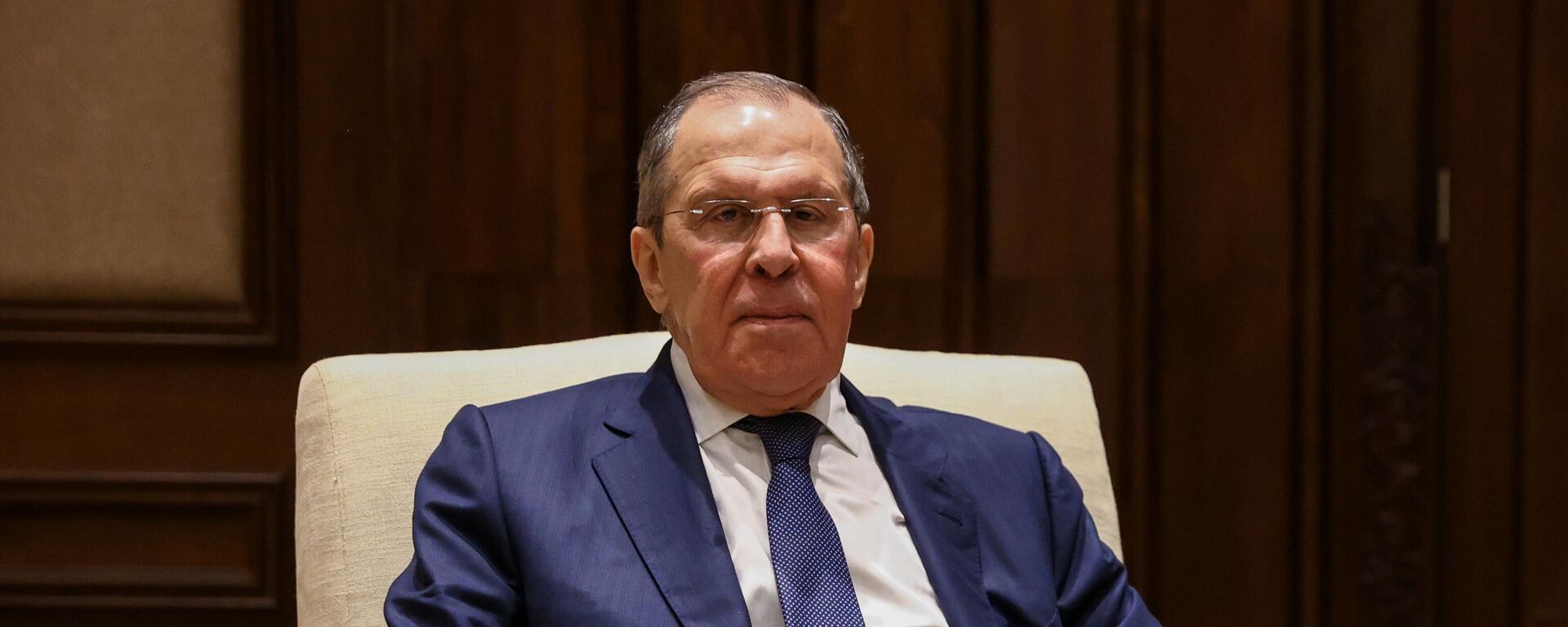https://sputnikglobe.com/20220721/transnistria-conflict-resolution-format-de-facto-not-working-russian-foreign-ministry-says-1097648686.html
Transnistria Conflict Resolution Format De Facto Not Working, Russian Foreign Ministry Says
Transnistria Conflict Resolution Format De Facto Not Working, Russian Foreign Ministry Says
Sputnik International
MOSCOW (Sputnik) - The 5+2 format on settlement of the Transnistria conflict – between Moldova, Transnistria, Russia, Ukraine, the OSCE as well as the EU and... 21.07.2022, Sputnik International
2022-07-21T09:53+0000
2022-07-21T09:53+0000
2022-07-21T09:55+0000
moldova
transnistria
conflict
russia
ukraine
https://cdn1.img.sputnikglobe.com/img/105372/86/1053728681_0:254:4928:3026_1920x0_80_0_0_f51b3b20b3a127079e3a427a17d6ca33.jpg
"The format is de facto not working at the moment, the last meeting took place more than two years ago. We do not currently see prospects for resuming this work," the official said during a round table at the upper house of Russia’s parliament.In a separate development, Transnistrian Foreign Minister Vitaly Ignatiev said that by supplying weapons to Moldova, NATO is worsening the situation and stirring up the confrontation in the region. In May, UK Foreign Secretary Liz Truss told a British daily that NATO wanted to send modern weapons to Moldova to protect it from what they see as a threat of Russian invasion. European Council President Charles Michel has likewise promised to increase military aid to the country.Earlier this week, Ignatiev also said that Moldova's possible withdrawal from the 1992 peace deal with Transnistria (officially known as the Pridnestrovian Moldavian Republic, or PMR) could lead to a new wave of military action. The 1992 Agreement on the Principles for a Peaceful Settlement of the Armed Conflict in the Dniester Region of the Republic of Moldova, signed by former Russian President Boris Yeltsin and ex-Moldovan President Mircea Snegur in 1992, stipulates the immediate ceasefire and the deployment of peacekeepers from Russia, Moldova, and Ukraine.Ignatiev stressed that the continuation of the peacekeeping mission by joint forces of Russian and Transnistria "remains the only effective means of ensuring peace and physical security of the half-million population of Transnistria, including over 220,000 Russian citizens".Transnistria, about 60% of whose population is Russian and Ukrainian, has been seeking to secede from Moldova since the collapse of the Soviet Union, fearing that Moldova would merge with Romania. In 1992, Transnistria became a territory de facto not controlled by Chisinau.
https://sputnikglobe.com/20220717/ukraines-moldovas-eu-candidate-status-part-of-anti-russian-gambit--1097404070.html
moldova
transnistria
ukraine
Sputnik International
feedback@sputniknews.com
+74956456601
MIA „Rossiya Segodnya“
2022
Sputnik International
feedback@sputniknews.com
+74956456601
MIA „Rossiya Segodnya“
News
en_EN
Sputnik International
feedback@sputniknews.com
+74956456601
MIA „Rossiya Segodnya“
Sputnik International
feedback@sputniknews.com
+74956456601
MIA „Rossiya Segodnya“
moldova, transnistria, conflict, ukraine
moldova, transnistria, conflict, ukraine
Transnistria Conflict Resolution Format De Facto Not Working, Russian Foreign Ministry Says
09:53 GMT 21.07.2022 (Updated: 09:55 GMT 21.07.2022) MOSCOW (Sputnik) - The 5+2 format on settlement of the Transnistria conflict – between Moldova, Transnistria, Russia, Ukraine, the OSCE as well as the EU and the US as observers – de facto is not working, Aleksey Polishchuk, the head of the Russian foreign ministry's second department for the Commonwealth of Independent States, said on Thursday.
"The format is de facto not working at the moment, the last meeting took place more than two years ago. We do not currently see prospects for resuming this work," the official said during a round table at the upper house of Russia’s parliament.
In a separate development, Transnistrian Foreign Minister Vitaly Ignatiev said that by supplying weapons to Moldova, NATO is worsening the situation and stirring up the confrontation in the region.
"Arming Moldova, NATO actually inflates the confrontation, provokes 'hot heads,'" Ignatiev said, adding that this "does not contribute to stability and security."
In May, UK Foreign Secretary Liz Truss
told a British daily that NATO wanted to send modern weapons to Moldova to protect it from what they see as a threat of Russian invasion. European Council President Charles Michel has likewise promised to increase military aid to the country.
Earlier this week, Ignatiev also said that Moldova's possible withdrawal from the 1992 peace deal with Transnistria (officially known as the Pridnestrovian Moldavian Republic, or PMR) could lead to a new wave of military action.
The 1992 Agreement on the Principles for a Peaceful Settlement of the Armed Conflict in the Dniester Region of the Republic of Moldova, signed by former Russian President Boris Yeltsin and ex-Moldovan President Mircea Snegur in 1992, stipulates the immediate ceasefire and the deployment of peacekeepers from Russia, Moldova, and Ukraine.
Ignatiev stressed that the continuation of the peacekeeping mission by joint forces of Russian and Transnistria "remains the only effective means of ensuring peace and physical security of the half-million population of Transnistria, including over 220,000 Russian citizens".
Transnistria, about 60% of whose population is Russian and Ukrainian, has been seeking to secede from Moldova since the collapse of the Soviet Union, fearing that Moldova would merge with Romania. In 1992, Transnistria became a territory de facto not controlled by Chisinau.



